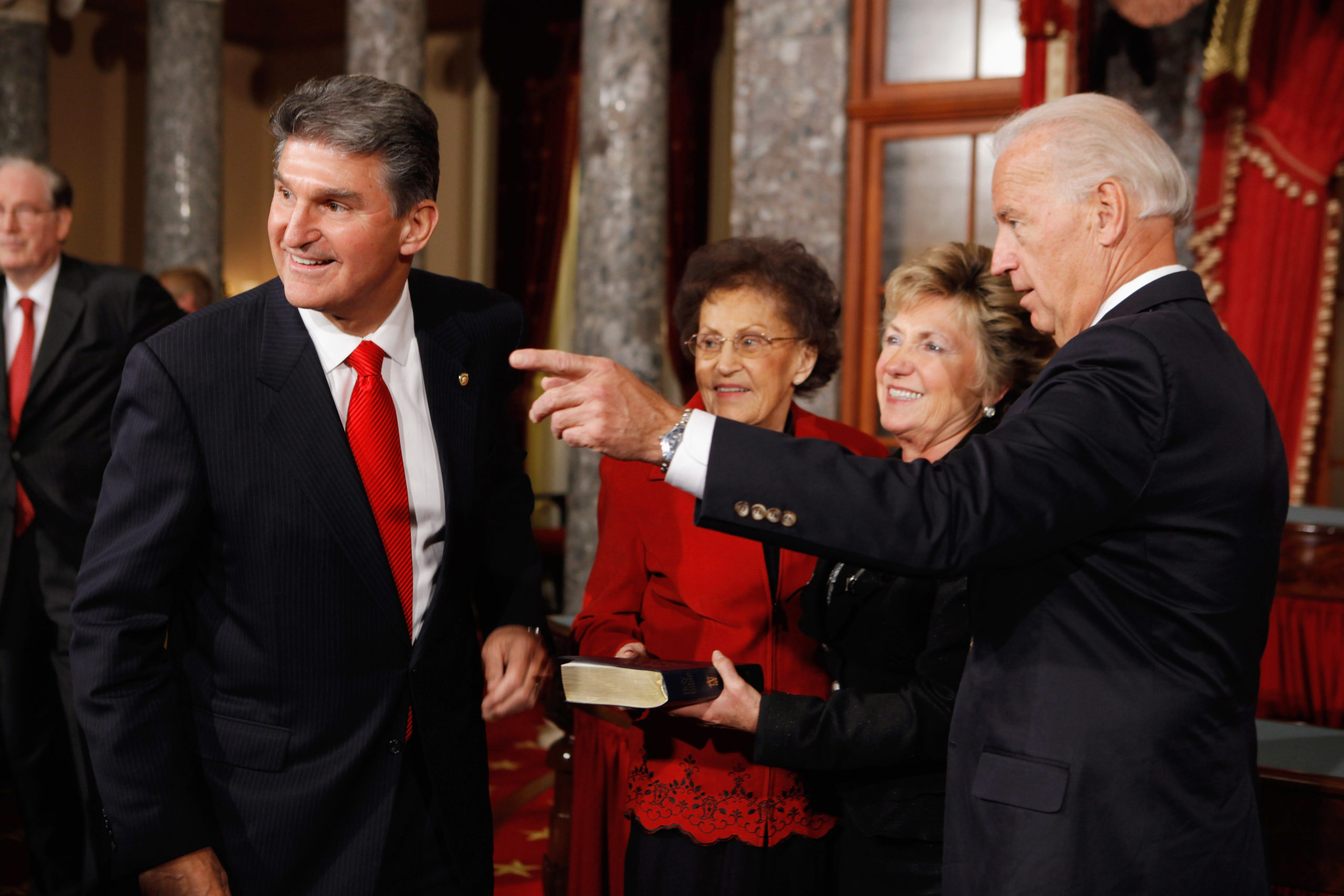The Joe's Green Machine
The Inflation Reduction Act is bad for America, but it will shore up support for the Biden administration among the party’s left wing.

The Inflation Reduction Act of 2022, like the American Civil Liberties Union or the People's Republic of China, doesn't quite live up to its name.
Senate Democrats are poised to advance a pared-back version of their multi-trillion dollar Build Back Better framework, handing progressives a potential legislative victory ahead of the midterms and achieving long-sought climate and tax reforms.
The bill calls for a nearly $370 billion investment in climate-related projects in the coming decade, with subsidies for solar and wind and proposed tax credits for electric vehicles. While progressives have resisted efforts to expand domestic oil production even as gas approached $8 a gallon in parts of the country, the Democrat-drafted summary of the bill touts the "over $60 billion" it allocates "to on-shore clean energy manufacturing in the U.S. across the full supply chain of clean energy and transportation technologies."
Senate Democrats claim the massive investment in green energy will curb U.S. carbon emissions by 40 percent by 2040, and that the pay-fors—narrowing the carried-interest loophole, allowing Medicaid to negotiate drug prices, establishing a 15 percent corporate minimum tax, and expanding IRS enforcement—will actually reduce the deficit.
But with inflation approaching 9.2 percent and the economy mired in recession, there's little chance the bill fulfills its titular promise. The Wall Street Journal noted that the disinflationary effects of the bill's proposed tax hikes won't kick in until the tail end of the decade. Upping corporate taxes, whatever the merits of that policy in a non-inflationary environment, will cut supply and further inflate prices. About half of the new proposed taxes will be paid by manufacturers, further slashing supply. You don't have to be a supply-sider to realize that cutting production in the middle of a generational inflationary period is not exactly good policy.
The bill received an unexpected endorsement from Joe Manchin, who had stymied previous iterations of the Build Back Better agenda. Manchin announced his support last Wednesday along with Chuck Schumer, and two of the bill's provisions—investments in carbon-capture technology and a requirement that the federal government open certain public lands for drilling—reportedly reflect Manchin's influence in the drafting process.
Since these reforms are being advanced through the budget reconciliation process, Senate Democrats only need 50 votes from their caucus, plus a tie-breaking vote from Kamala Harris, to get the bill to Biden's desk. The remaining question mark is Kyrsten Sinema, who hasn't addressed the bill publicly despite her having reportedly influenced the prescription-drug-reform framework in its final text.
Sinema is a notorious booster of private equity, and Democrats worry she'll balk at the bill's narrowing of the carried-interest loophole. Manchin, for his part, said he is "not prepared to lose" the tax hike, but if Sinema refuses to budge, Democrats may be willing to strike the provision entirely. The proposed taxes on investment income account for less than 2 percent of the bill's total projected revenue, according to Joint Committee on Taxation and Congressional Budget Office estimates.
It is noteworthy that, of all the agenda items in the original $2.2 trillion Build Back Better legislation—government-subsidized childcare, so women can return to work while public employees teach their children about sodomy; universal pre-kindergarten, to achieve the same purpose; increasing the State and Local Tax deduction, to cut taxes for wealthy progressives; zoning-reform grants, to destroy small towns and suburbs—addressing climate change is featured most prominently in this last-ditch version of the bill. It reflects the valence of the climate issue across the progressive coalition and its utility as a vehicle for achieving other progressive aims.
Subscribe Today
Get daily emails in your inbox
Climate unites the disparate factions within the Democratic Party that otherwise have different priorities and, in some cases, actively dislike each other. For one, it appeals to young progressives, who are among the Democratic constituencies least satisfied with the Biden administration; only 57 percent of Democratic voters under 30 support Biden's performance, in part because of his failure to "act" on climate change. It also lends itself to racial bean-counting and "equity" audits; the bill plays on the "environmental justice" meme, that environmental harms are disproportionately borne by "communities of color," and appropriates more than $30 million to track "disproportionate negative environmental harms and climate impacts" and to "track disproportionate burdens."
Climate action of the kind proposed expands the regulatory state and boosts the career prospects of soft-science graduates. It punishes coal workers, fossil-fuel executives, and other perceived enemies of the progressive agenda. It upends conservative towns and communities that rely on fossil-fuel production for employment and sustenance. It rewards friends and punishes enemies.
The Inflation Reduction Act won't do what its title suggests. In the short term, it may do the opposite. But its primary effect may be to mollify the most progressive elements within the Democratic coalition. And for an administration rapidly bleeding support among its base, that's not nothing.